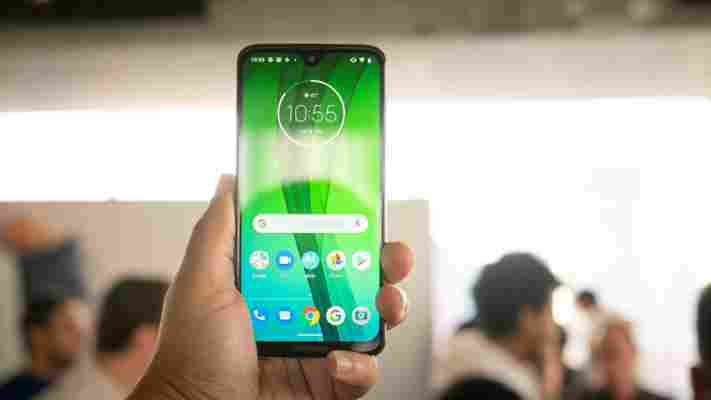Motorola’s new Moto G7 blurs the line between budget and flagship
I’m less compelled to recommend flagship phones every year. Smartphone performance has largely crossed a point of diminishing returns, where a well-optimized budget phone might feel as smooth as a $1,000 one.

Nowhere has this been truer than with Motorola’s Moto G family. Now Motorola is promising to blur the line between budget and flagship even further with its new Moto G7 family.
Motorola is announcing four devices in total: the $199 G7 Play, the $249 G7 Power, the $299 Moto G7, and the £299 G7 Plus (this model isn’t coming to the US, hence the currency in pounds).
The cheaper three models share the same Snapdragon 632 processor this time around, which should provide a 50 – 60 percent performance boost (and last gen’s models were no slouches). The two cheaper models come with plastic bodies, while the more expensive one’s upgrade to a Gorilla Glass back.
The G7 Play is the cheapest of the models and features a 5.7-inch HD+ display (1520×720), 2GB of RAM and 32 GB of expandable storage. A 3,000 mAh battery should provide 48 hours of battery life, and it has a single 13MP F2.0 camera on the rear.
The G7 Power brings a 6.2-inch HD+ display with an iPhone X-like notch, 3GB of RAM and 32GB of storage. Its main selling point, however, is the massive 5,000 mAh battery. That’s about the biggest battery I’ve seen on a mainstream phone, and Motorola says it should provide 3 days of battery life. The camera is the same as on the G7 Play.
Then there’s the standard G7. With its glass-sandwich chassis and teardrop notch, it’d be easy to mistake it for a flagship phone. I dig the look and it felt premium when I got the chance to play with it. The only real giveaway was the fact the frame appears to be chrome-plated plastic rather than actual aluminum.
The display is a Full HD+ (2270 x 1080) LCD. There’s 4GB of RAM and 64GB of expandable storage, which should be enough for the vast majority of people. The 3000 mAh battery should easily get you through a day.
Though each of the models has a software-powered portrait mode, the G7 should perform better thanks to its secondary depth-sensing camera. There’s no telephoto lens onboard, but Motorola has improved digital zoom using software processing similar to what Google does.
Lastly, there’s the G7 Plus, which upgrades to a slightly faster Snapdragon 636, brings Dolby-tuned stereo speakers, and improved charging speed with a 27W charger. It also features a 16MP dual camera system with optical image stabilization for improved photography.
I had the chance to test the three models coming to the US, and each felt smooth and responsive in my brief time with them. That’s no surprise, given Motorola’s minimal approach to altering Android (9.0, by the way); the Moto G family has always delivered smooth performance for the price point.
Given sizeable batteries with efficient processors, the main question mark will probably be battery life, for which you’ll have to stay tuned to our review. The devices are available today in Brazil and Mexico, and are rolling out to most other regions in the coming weeks. US and Canada customers will have to wait until the spring.
This post includes affiliate links to products that you can buy online. If you purchase them through our links, we get a small cut of the revenue.
